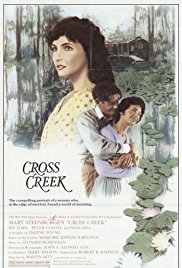RUNNING AWAY
1. Would you run away if your father had to kill your favorite pet in order to prevent it from eating your family’s food?
Suggested Response:
The right answer is “no” because running away is extremely dangerous. A pet, any pet, is not worth the risks inherent in running away. In addition, in this case there was a reason the pet had to be killed.
2. What could have happened to Ellie when she ran away?
Suggested Response:
Ellie could have gotten lost, or she could have suffered an injury. She could have been robbed, raped, or kidnapped. (In today’s world sexual abuse and “white slavery” are additional risks.)
3. Running away from home is obviously risky behavior. In today’s world, what are some of the alternatives to running away if life at home becomes intolerable?
Suggested Response:
The first step is to try everything you can think of to change the situation short of running away. Be creative; think outside the box. Try to get everyone or yourself into therapy. If absolutely nothing will work and you must leave, staying with a trusted friend or relative is a good idea. There are also social service agencies that will help you find a place to stay. These are available through the police, your school or youth group counselor, or a religious leader such as a minister, priest, or rabbi.
4. What is the most important unexpected consequence of Ellie’s reaction to her father killing the deer?
Suggested Response:
Her father flips out and dies.
FAMILIES IN CRISIS and FATHER/DAUGHTER
See the Quick Discussion Question.
5. What assets do modern families in developed countries have in dealing with a crisis at home which were not available to the Turner family in Cross Creek?
Suggested Response:
There are many. Here are two that a good answer would refer to (1) a developed social service network that has places for children to stay for a while if they’ve left home and (2) family and individual counseling and psychological therapy. A well-trained counselor, for example, would have comforted a distraught Ellie and pointed out that her father had no choice but to kill the deer. If Ellie had run away, a counselor would have led Marsh Turner to an understanding that his panic and grief were based upon an unrealistic view of his relationship with his daughter, would have reassured him that he would have a good relationship with his daughter in the future, and would have guided him to a less dependent relationship with her when she returned.
TAKING CARE OF YOURSELF and SUICIDE
6. Did Marsh Turner commit suicide or was his death caused by a misunderstanding?
Suggested Response:
There is no one right answer. See Did Marsh Turner Commit “Suicide by Cop” or Was his Death The Result of a Tragic Misunderstanding? located in the Helpful Background Section.
7. Two related questions: (a) Was Marsh Turner right when he thought that his relationship with his daughter would never be the same? (b) Can you think of a strategy that he could he have used to deal with the situation other than killing himself or placing himself in a situation in which the sheriff killed him? As you answer, notice the resources are available to most people in developed countries that could have changed this situation.
Suggested Response:
(a) Marsh was right that his relationship with his daughter would never be the same. However, it wasn’t irretrievably lost and could have become a great deal better if it was placed on a healthier footing. (b) There are several strategies Marsh could have used: Just waiting until Ellie had matured would be enough to change the dynamic of the situation. There is a term physicians use called “tincture of time.” By this, they mean that the body often heals itself without the doctor doing anything. The same is true in human relationships. Intervention through therapy and counseling were another strategy, but these were probably not available at the time. Therapy would have helped the Turner family resolve their conflicts over the deer, change the overly involved dependent relationship between Ellie and her father, and move the family toward a system that promoted the personal fulfillment of individual family members. Family therapy or even individual therapy would also have helped Marsh Turner overcome the very serious psychological problems and unrealistic expectations that he had which contributed to his suicide/dangerous behavior.
8. The sheriff shot and killed Marsh Turner. Shouldn’t he have just wounded him?
Suggested Response:
Certainly just wounding Turner would have been better. The risk was that a wounded Marsh Turner could shoot back at the sheriff. The question of when to shoot and where to shoot is a constant problem for conscientious police officers.
9. What is a stakeholder and who were the stakeholders in the father’s decision to commit suicide or to engage in behavior which would put him in a dangerous situation?
Suggested Response:
A stakeholder is a person who is affected, directly or indirectly, by the decision of another. Each member of Marsh Turner’s family was a stakeholder in his decision to commit suicide or to take action that put his life in danger. The message of rejection of love being offered and the disinterest in offering love to surviving family members are the overriding messages that a suicide leaves behind. It’s very difficult for children to recover from this type of unalterable and absolute abandonment. Spouses are especially hard hit by the rejection implicit in suicide.



